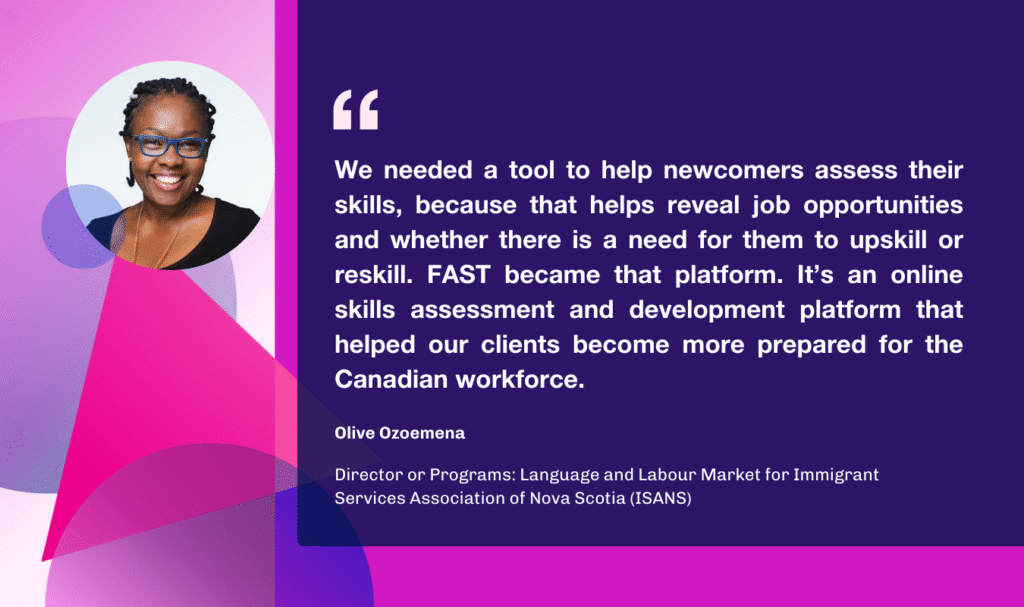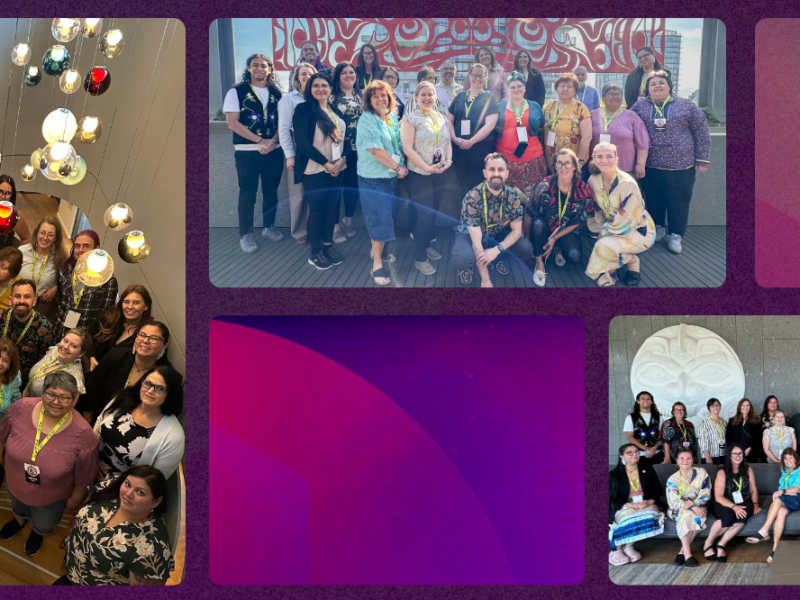Impact Story: Online tool allows newcomers to assess their skills for Canada’s labour market

Immigrants to Canada face chronic underemployment, while at the same time employers here are crying out for skilled workers. Part of the problem is that employers find it difficult to identify and assess the skills immigrants bring to the table and how their experience could be best applied in Canada’s labour market. Newcomers need help articulating in a way employers can understand their skills and filling in any gaps in their experience that might be helpful in landing and keeping a job in their field.
To help accelerate employment for skilled immigrants in Canada, the Future Skills Centre funded a pilot program designed to help newcomers overcome barriers to entry into the Canadian labour market and to help employers find the talent they need in sectors such as the skilled trades, IT and data services, culinary arts, seniors care and more.
FAST, which stands for Facilitating Access to Skilled Talent, is an online skills assessment and development platform that lets immigrants assess their knowledge and skills against standards required for work in Canada. Wraparound supports include modules to prepare newcomers for the expectations and realities of the Canadian workplace and networking opportunities with employers.
The FAST program is led by Immigrant Employment Council of B.C., and is a partnership with the British Columbia Institute of Technology (BCIT), with support from BioTalent Canada and the Information Communication Technology Council (ICTC).

Olive Ozoemena, Director of Programs: Language and Labour Market for Immigrant Services Association of Nova Scotia (ISANS), says the platform became the go-to skills assessment and development tool for newcomers in that province. Not only can immigrants use the online platform to identify their skills, they can also access learning modules to address what’s missing, she says.
“They begin to identify if there is a need for them to upskill or reskill, depending on what career path they want to follow, and so we saw huge success with FAST. It’s an online skills assessment and development platform that really did help our clients become more prepared for this Canadian workforce,” Ozoemena says.
Challenge: Connecting newcomers to jobs
Once newcomers do a self-assessment of their skills, job seekers can then access multiple learning streams tailored to different industries. Modules are available for both technical and soft skills, serving high demand sectors.
The material is relevant because it was developed through an advisory group of employers, professional associations and subject matter experts.
“Employers played a huge role,” Ozoemena explains. “You need the input of industry experts, sector experts, the employers, and even the unions and the associations to help inform what you put in your programing to make sure we’re truly giving employers what they need.”
Solution: An online tool to validate newcomer skills
FAST has served more than 800 clients in 68 occupations. The model has recently expanded to seniors care in British Columbia, in partnership with BC Care Providers and, in partnership with New Brunswick Community College, introduced skilled trades streams that assess skills gaps for newcomers entering college programs.
While it has certainly shown success, the project underscored that this kind of self-directed online learning is not for everyone. More than 500 people were enrolled in FAST through ISANS, with half completing a certificate as part of their upskilling, highlighting the effectiveness of the tool for newcomers who are self-motivated and have the language and digital skills needed to access the platform. But its success is significantly enhanced when combined with wrap-around supports such as job search assistance, mentorship and employer support.
In Nova Scotia, newcomers who have taken the online skills assessment then meet with an employment counsellor who provides career coaching, resume building skills, interview prep, an employment action plan and introductions to employers.
Ozoemena says helping immigrants secure and retain employment not only benefits those individuals and their household, it supports prosperity for the province and Canada.
“There is that economic growth that comes from someone working in their field and, getting paid for their work. They pay taxes and there is an economic implication for that, not just for that individual and their household, but also for the province and Canada as a whole, right?”
The views, thoughts and opinions expressed here are the author’s own and do not necessarily reflect the viewpoint, official policy or position of the Future Skills Centre or any of its staff members or consortium partners.




